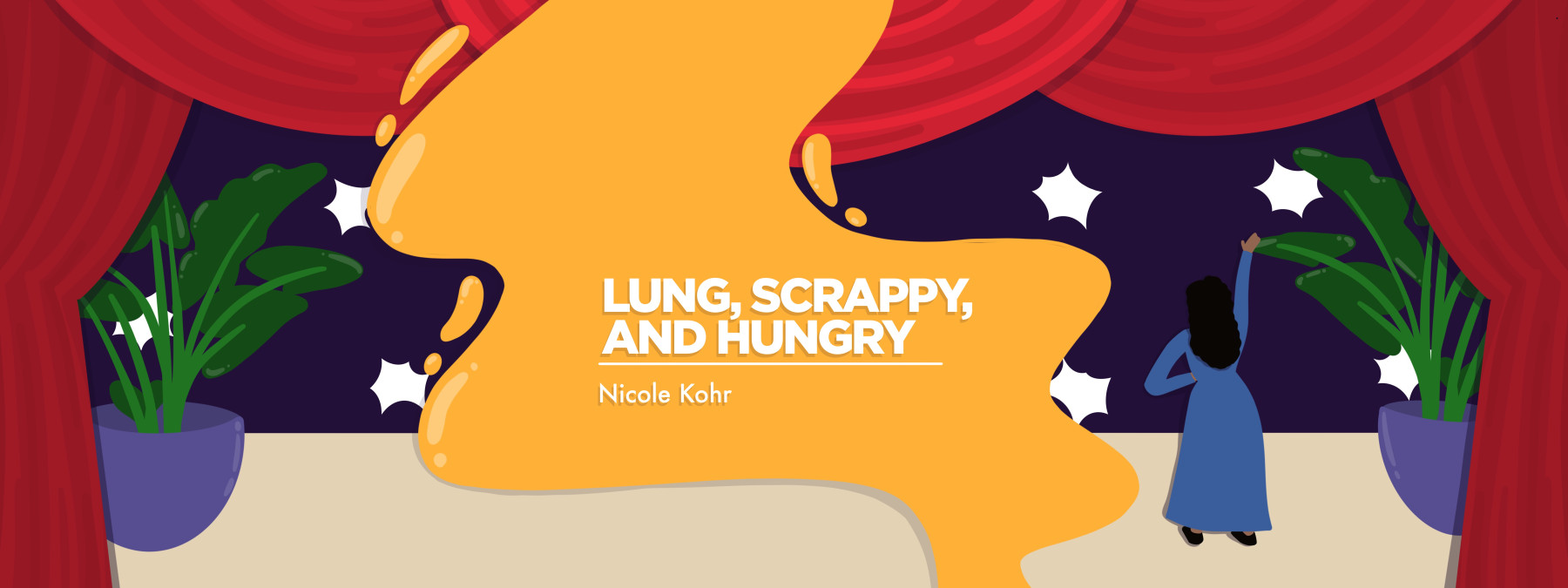Celebrating ‘Company’: Visitors at the Hospital
Written by |

“Phone rings./ Door chimes./ In comes company.” — from “Company,” from the musical of the same name
There was a time I wasn’t a fan of hospital visitors. Living with cystic fibrosis (CF), I needed hours of maintenance to appear clean and put together.
I’d spend an hour in the shower clearing my sinuses, washing my hair, and praying the soap would disguise the overwhelming smell of infection. Getting the odor of Mucomyst, a potent nebulizer treatment, off my breath required at least two brushings of my teeth. Only black T-shirts would hide my sweat marks.
By the time company arrived, I’d already exhausted the amount of energy I reserved for the visit.
Masking the reality of my situation made things extra complicated. I was never transparent about my energy level with my friends and family, so they didn’t know how much work I put into hosting people. Nor did they understand how sick I was based on my “don’t worry about me” attitude.
There were times, however, when I found visitors uplifting. When I was younger, ages 5 through 13, I loved having them. At the time, I would be hospitalized for at least two weeks, a standard known as a tuneup, to receive IV antibiotics. These tuneups were not emergencies, just a way to battle infections and prevent scarring. Therefore, I didn’t feel that sick. In fact, I was almost hyperactive.
The 50-something videocassettes that my mom and grandparents would bring to the hospital only lasted so long. The same went for the crafts that my mom would create. Seeing a friend or teacher peek through my window, however, gave me the entertainment I needed to get through the rest of my isolation.
Nurses and passersby would gawk at the number of people in my room. At times, 15 or more people would gather around my bed. Everyone would dress up in isolation gear, and we’d fill scrapbook after scrapbook with Polaroid pictures and memories. It was fun. I felt included in the life that I regularly felt absent from, and it made the two weeks go by quickly.
When I was older, isolation rooms were no longer a place for my friends and family to party. My disease had progressed, causing my lungs and digestive system to be in poor shape. I was exhausted from battling back-to-back infections to the point where I’d succumb to more frequent hospitalizations, and the treatments administered were far more intense.
Unfortunately, my continuous lack of transparency and my reputation for partying in the hospital led to a big miscommunication between my visitors and me.
“You’re probably chomping at the bit to get out of here! Your doctors are too protective. Are you wearing your sneakers to bed?”
The miscommunications persisted after I neglected to update my friends and family on my condition. In high school, I convinced myself that I was being too introverted and that visitors would perk me up. I even encouraged my friends to pop by.
During the visits, though, my blood pressure would spike. I’d sweat through my shirt, or I’d make an irresponsible decision, like dismissing my respiratory therapist before I cleared my lungs. Eventually, my symptoms would become too unbearable to hide, and my guests would bow out early.
Opening up to visitors about my energy level has made my life a lot easier. I still send messages every now and then saying, “Thank you for reaching out. I miss you so much, but I really need to rest today.”
“Company,” a musical written by George Furth and Stephen Sondheim, opens with several people reaching out to the lead character, called Bobbie in the current Broadway production. Whenever I listen to it, I flash back to the times when my phone would light up during the small gap of time the hospital allots for sleep.
Flash forward to present day: I love having visitors. Transparency has helped me share my comfort level, so visits are relaxing. I’ve had friends come to the hospital and just watch me sleep. Others have brought me a snack, enjoyed a few episodes of “Friends,” and called it a day. Others just sent sweet text messages: “Sending you love, no need to respond.”
Regardless of the visit, I’m humbled by the number of people who have held my hand through my journey with cystic fibrosis. None of them was required to visit me in the hospital, and yet they all went out of their way to do so. They gave me the most beautiful gift, a feeling of support — and dozens of scrapbooks with memories.
Also from “Company”: “And that’s what it’s all about, isn’t it?”
Note: Cystic Fibrosis News Today is strictly a news and information website about the disease. It does not provide medical advice, diagnosis, or treatment. This content is not intended to be a substitute for professional medical advice, diagnosis, or treatment. Always seek the advice of your physician or other qualified health provider with any questions you may have regarding a medical condition. Never disregard professional medical advice or delay in seeking it because of something you have read on this website. The opinions expressed in this column are not those of Cystic Fibrosis News Today or its parent company, Bionews, and are intended to spark discussion about issues pertaining to cystic fibrosis.








Paul & Debbie
That's a great talk! Indeed, we need to communicate our needs and possibilities. Saying what you want is a gift. It allows those who want to share their love with us to do it the right way, on the right moment, in the right amount. This way, nothing gets lost in translation. Telling them about this is paying respect to their abilities and generosity and taking care of our own legitimate needs. It would be egoic to act otherwise.